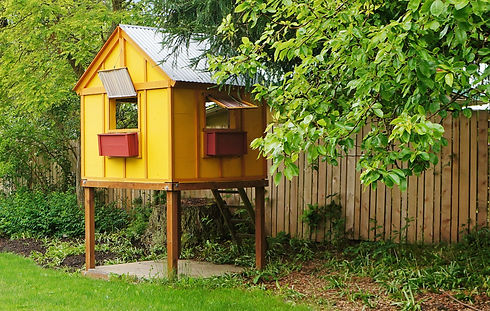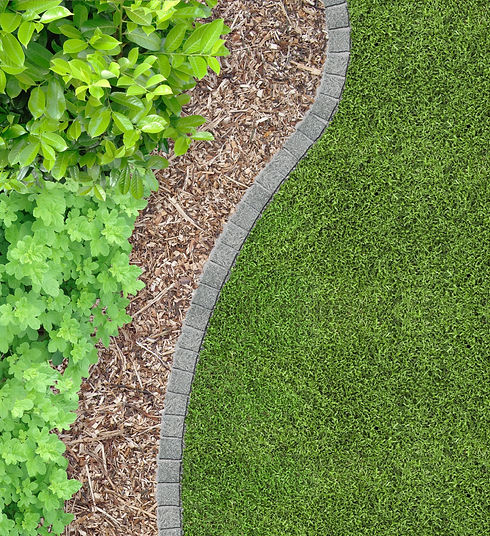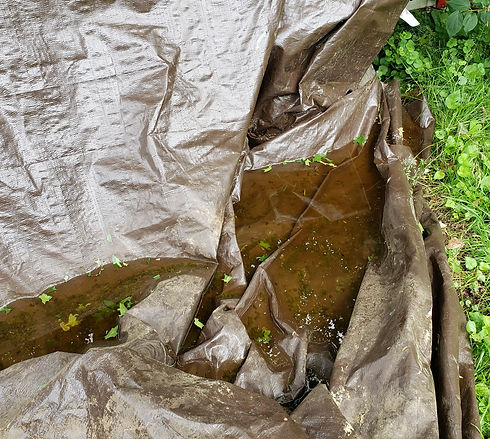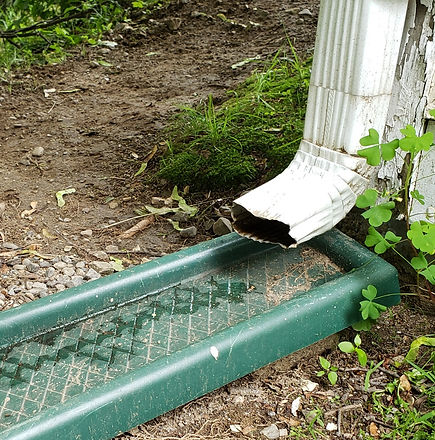
Tips to help reduce insects in your yard
Ticks
You can find ticks in shady, damp areas, away from direct sunlight.
Generally, you will not find them on cut and raked grass, as this exposes them to direct sunlight and dehydration.
Ticks wait for their prey patiently on knee high vegetation, extending their front legs in the air. When you brush past them, they climb on for a meal. They do not jump or fly onto you.
Rodents are the primary culprit for producing infected ticks.
Along with yard treatment, making small modifications to your property can reduce your exposure to ticks.
Common tick habitats:
Stone walls, woodpiles, ground cover, low growing vegetation, leaves, grass clippings, tall brush/grass, or where your lawn meets the woods.
Mow your lawn frequently
Ticks wait on tall grass to attach and feed on you and your pets.
Mosquitoes, fleas, no-see-ums, and fungus gnats also hide in tall grasses.

Rake, bag and dispose of leaves and grass clippings
Plant debris makes a great moist hiding and breeding spot for ticks (and other insects!)

Keep plants trimmed and away from your home, walkways, and paths.
These high traffic areas are a great spot for hungry ticks to wait for passing prey.
Don't forget to rake and remove leaves from underneath plants, decks, and low lying areas.
Untrimmed shrubs touching your home also allows access for other insects to enter your home.

Stack wood neatly in a dry area away from the house
Wood piles are a perfect hiding spot for rodents, who carry ticks!
Wood boring insects can easily tunnel directly from the wood, into the structure of your home. Stack wood off the ground to maintain airflow. Never store firewood inside your home; insects can emerge and take up residence.

Keep bird feeders away
from high traffic areas
If you enjoy feeding the birds, clean underneath the feeder frequently; rodents seek dropped bird food, and they carry ticks!

Place playground equipment, toys, patio furniture etc. AWAY from the edge of your yard and not under trees.
Place in the middle of your yard where it's sunny, which ticks hate!
Don't let your children play in PRIME TICK HABITAT


Remove debris, trash, and animal waste
Clutter creates another hiding place for rodents/ticks and possible standing water for mosquitoes. Animal waste and trash attracts flies and their larva.

Create a cedar wood chip or stone barrier
Place a 3-ft wide barrier of wood chips, gravel and/or stone between lawns and wooded areas to restrict tick migration into your yard.
This area also acts as a "warning zone" to remind young children to stay away from tick habitat.

Fences, retaining/rock walls, and exterior walls of outbuildings, such as sheds, are popular insect hideouts.
Trim weeds and tall grass, remove leaves and clutter. Mice frequent sheds, mice carry ticks!

Mosquitoes
Mosquitoes can live almost anywhere, however they prefer hot and humid locations, such as forests, marshes, tall grasses, weeds, and wet ground.
Female mosquitoes need a breeding site (slow moving or stagnant water or mud) close to a blood meal (you), so that they can lay eggs on the water's surface.
The eggs hatch in 2 days, become larvae and take 5-7 days to pupate, which emerge into adults within 2 days.
Below are some tips to help you reduce breeding spots on your property. Paring these tips with your treatments, you can significantly reduce populations.
Empty standing water frequently
Tarps, toys, pet bowls, furniture, old tires, buckets, trash cans/lids

Clean birdbaths frequently
Place baths away from plants that shed leaves/flowers and several feet from bird feeders to avoid contamination. Position away from tick habitat (tall grasses), while ensuring that a bird can escape to a near by tree, if needed.

Fix leaky hoses, faucets and sprinklers to prevent water pooling

Clean Gutters Regularly
Mosquitoes need just two tablespoons of water to breed in.

Clean and remove all blockages from storm drains

Check flower pots and flower pot drip trays for standing water

To keep insects out of your home:
Repair broken screens, fix loose siding, seal foundation cracks, fix loose door and vent seals.


